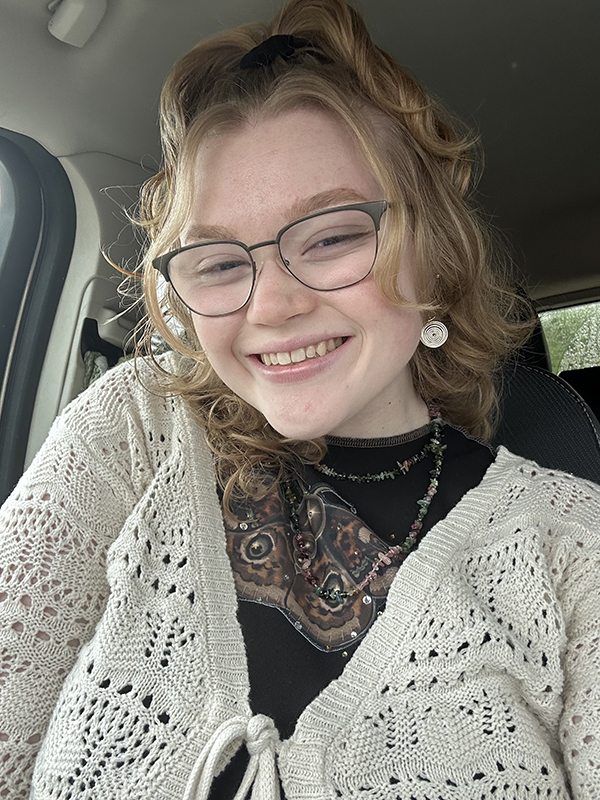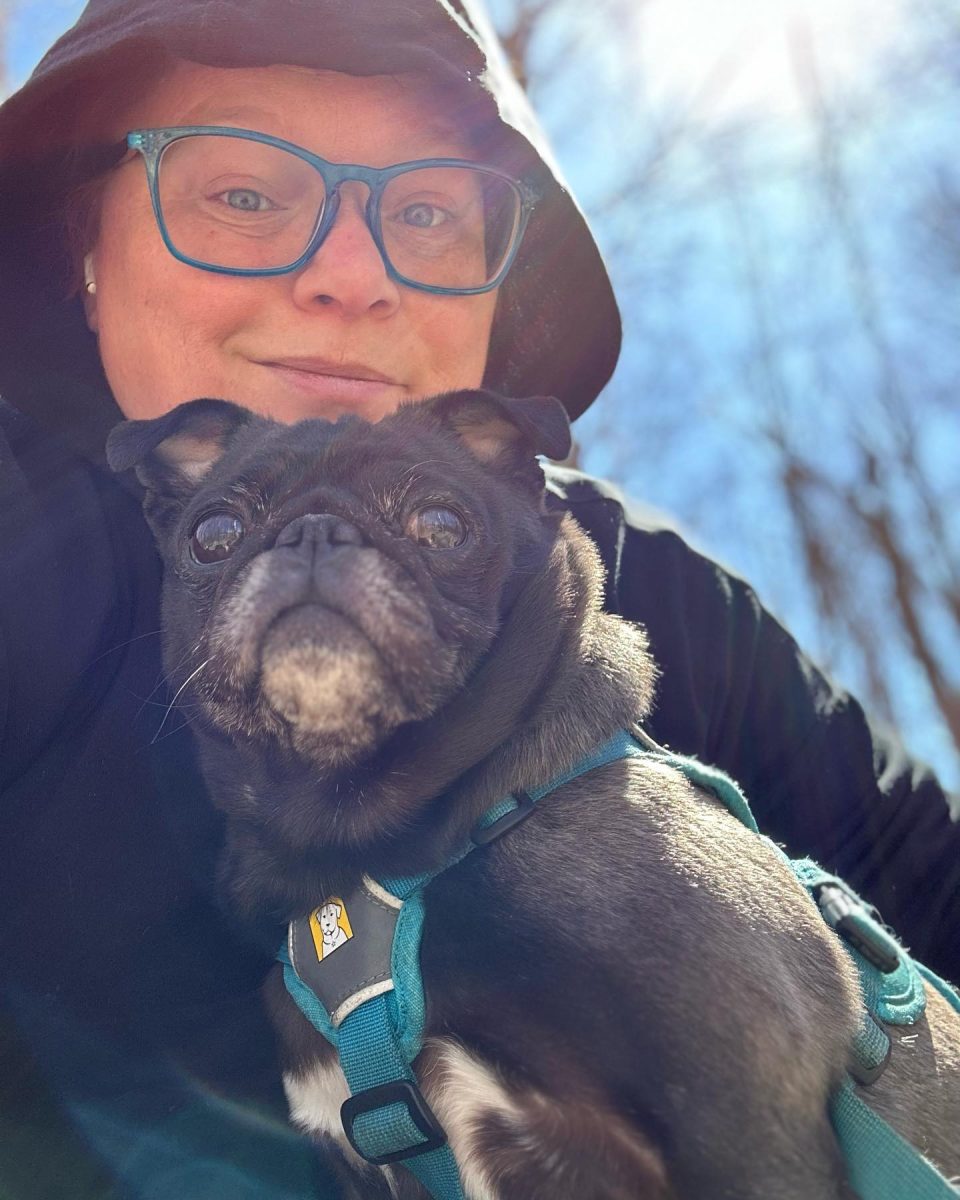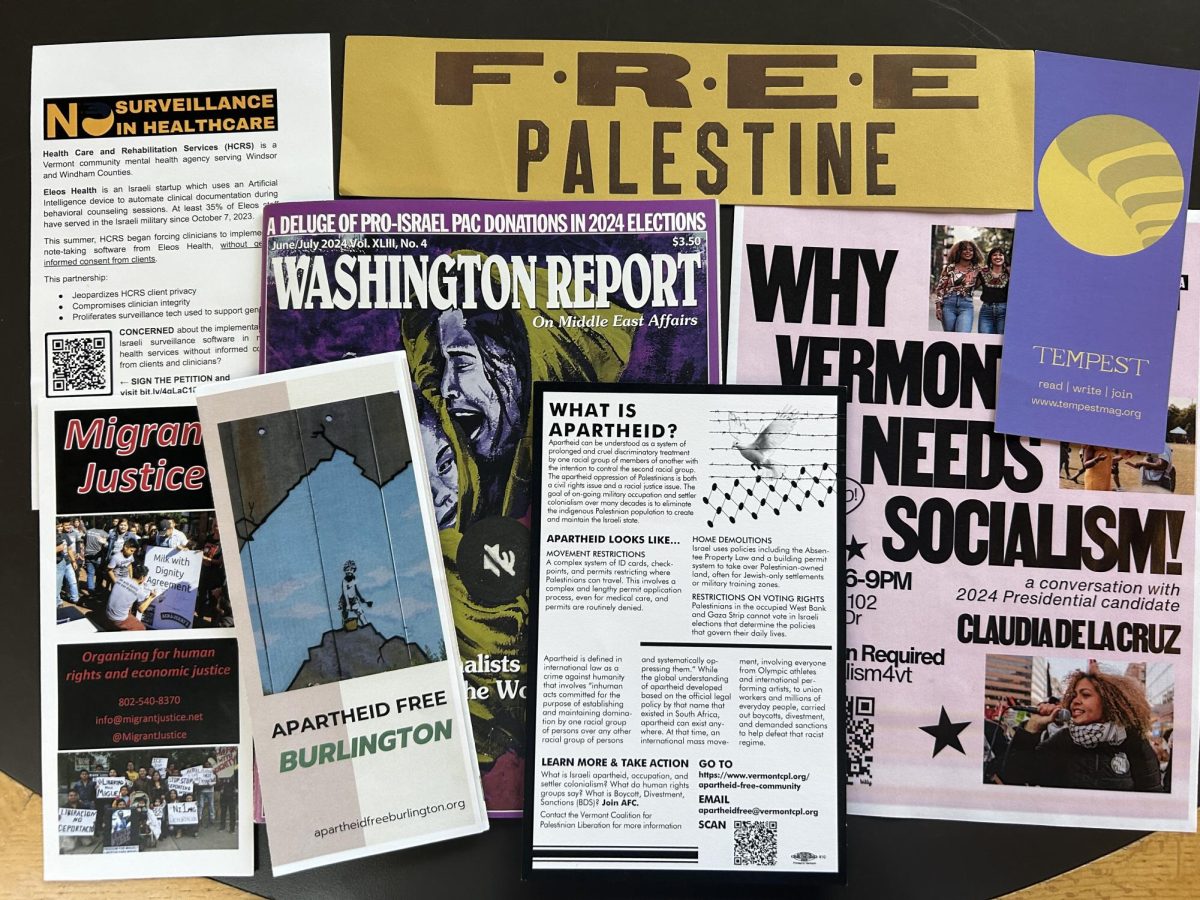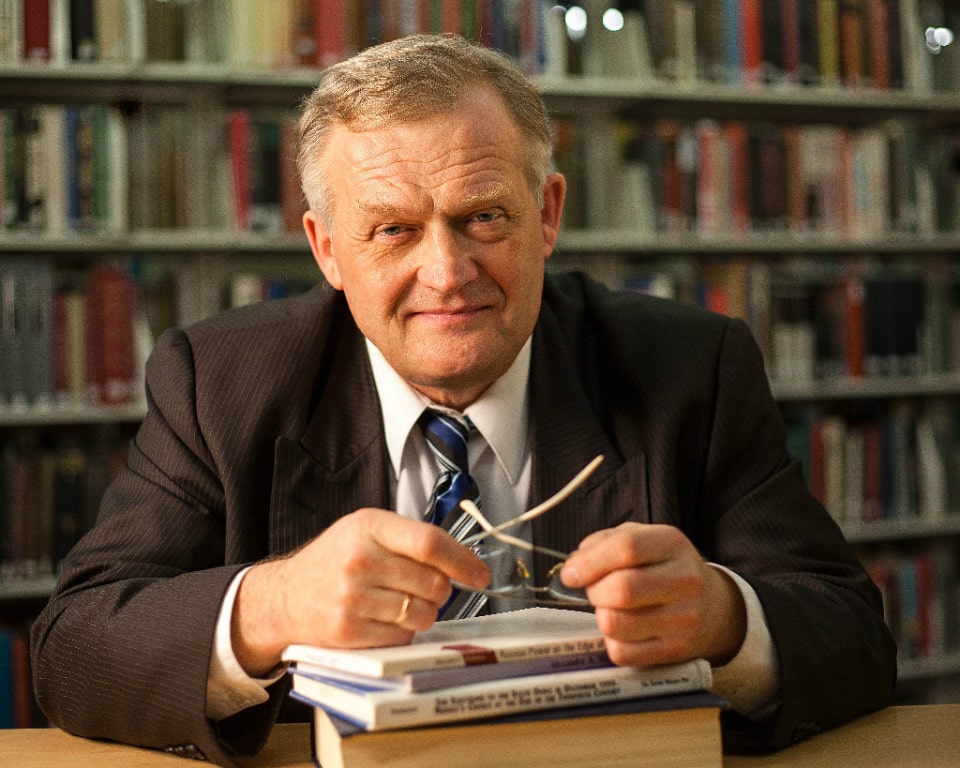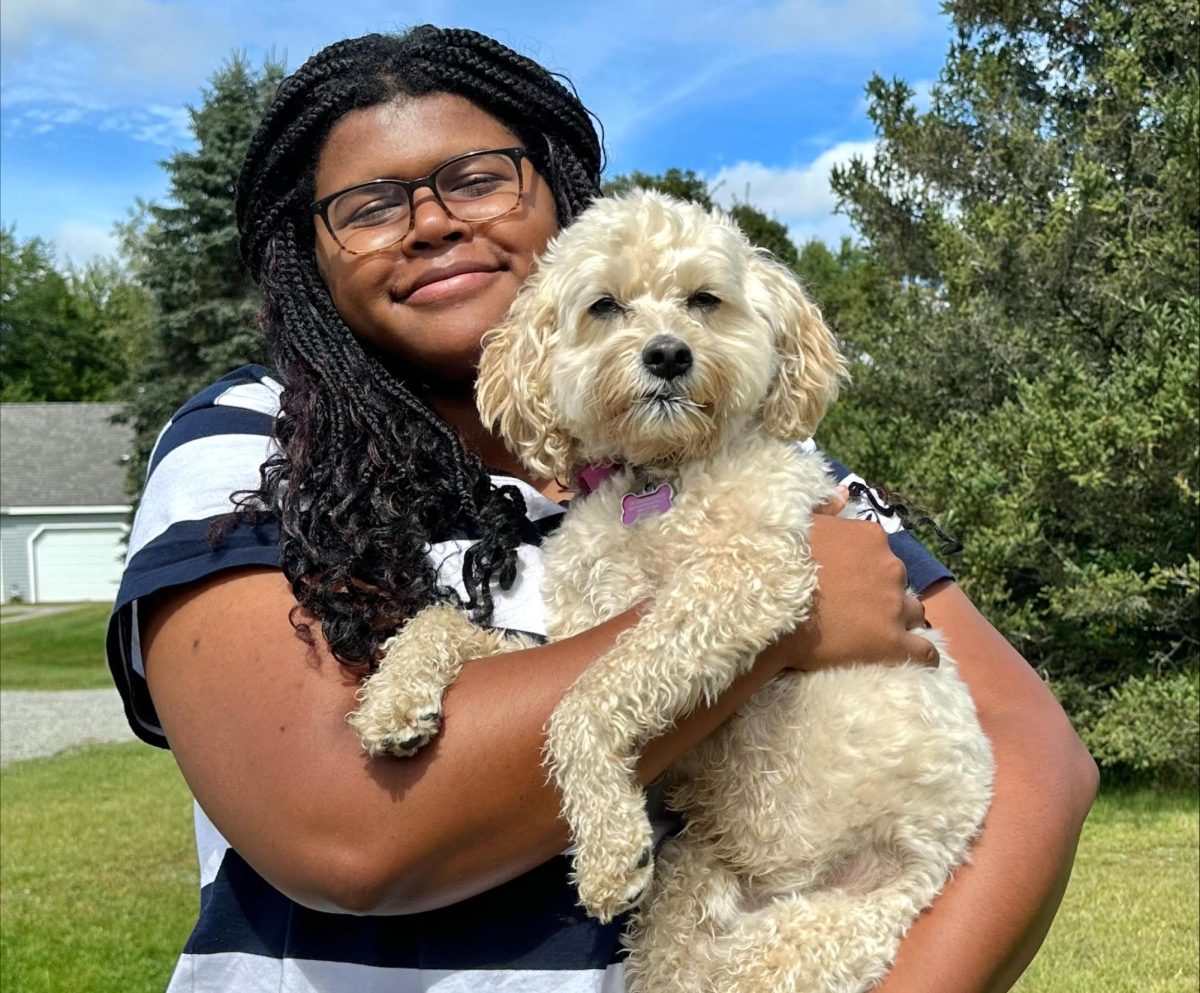Martha Lance has been the Learning Resource Center Coordinator in the TRIO office at Johnson State College since 2010. She heads up the tutoring arm of the academic support services, and serves TRIO students as a mentor and adviser. She grew up in New Jersey and has traveled the country finally returning home to the place that has been home to five generations of Lances.
So tell me how you came to find yourself at Johnson?
It was a really circuitous route actually. I’ve always been in education, since college for the most part in higher education, either as [a student] or as an educator. I got my PhD from the University of Pennsylvania in historical archeology in 1993, and I was a professional archeologist for about 15 years or so. After my teaching appointment at the University of Puget Sound ended, I was head of the education historical society for two years. Finally, I had the opportunity to come home to Vermont in 2005 because I had a teaching appointment at SUNY Plattsburg, and that ended. Then I taught at Vermont Adult Learning for two years. Then this job came about. In a funny way I’ve always been intrigued by Johnson, and I was really thrilled to come here and to deepen myself as an educator. It’s funny how your career unfolds. It has not been dull.
What was your motivation for getting a PhD in historical archeology?
To me it’s one way of getting closer to historical truth, and because archeology requires thinking about culture in a gentle way. It opens up the opportunity to look for evidence in unlikely places and, in my case, historical architecture. I firmly believe it’s a very egalitarian study because most of the people in history have not been literate, or written words. To me their stories are vital for us to understand and archeology allows us to get their words out as well, whereas if you’re just studying medieval manuscripts at the Vatican, then who are you really studying? It’s a worthwhile study, but for me I’ve been much more interested in common folk. I think they are much more interesting than the elite in many ways. So, to me becoming an archeologist was one way of getting closer to them. It made history proximate to me, and real. If past people left a chisel, or some change in their pocket, you’re the next one to touch it after 200 years.
Did Indiana Jones affect any of your life decisions?
Well I never bought a whip and ran around with it, but I do remember going to see the movies and it was great fun. Apparently one of the guys I worked with at Penn was supposed to have been the prototype for it. He was this older gentleman who worked in the Forties and I thought he was kind of dashing.
You mentioned you did some archeology work for a time. What was it you were doing?
It took me ten years to complete my dissertation because I was working a couple jobs and doing archeology. I was working at Old Sturbridge Village… that’s where I did my dissertation research. Because it was archeology, it took forever. I had 38 sites. This was part of a multi-year NEH (National Endowment for the Humanities) grant in nineteenth century American culture, so I parked it there for a while. I also had an opportunity to do my dissertation in Northern Ireland on a seventeenth century site. I spent part of the summer of grad school in Northern Ireland and in Sturbridge Village. It was tempting to do the Northern Ireland thing because in the plantation period, not like our plantations, but in the seventeenth century they were planting culture, so I was doing a comparative study.
What was the most interesting thing you’ve unearthed?
I found a finger nail once, which grossed me out. Actually, in Northern Ireland, I excavated a skeleton. I found that very difficult in many ways, the responsibility because it was really fragile, and just fantasizing about the death of this person and people grieving over this person and here this college kid is digging it up with a pocket knife. It was a weird sensation and I found it really humbling.
You stated earlier that you had a “Stupid PhD.” What did you mean by that?
I don’t think it makes my quality of mind better than anyone else. I don’t think it’s stupid at all, I earned it, and worked really hard for it, and admire it, but I guess I can’t shake my father’s approach, he as a surgeon, that he fundamentally didn’t want his education to get in the way of his ability to care for his patients. For me, teaching is an act of healing and I guess I said that glibly because I’m not ashamed of my Ph.D and I worked really hard for it but there’s this class system in academia and you have to have it if you’re going to advance. I wasn’t pooh-poohing it. I wasn’t pooh-poohing people who had it, but I also know of some people who deserve to get it, but can’t financially, and it’s a shame.
Have you ever met anyone famous?
Rosa Parks when she received an honorary degree at my college. I don’t know if it counts because I only met her briefly in 1981. She was up on the stage with the faculty. She was darling, and just sat with a hat and gloves on, and had such presence for such a tiny little thing.
Education and schooling are the same. Do you agree?
No, not at all. Sometimes I think there is snobbery about degrees and college education and some of the finest minds that I’ve been exposed to didn’t have college degrees. I think certainly that schooling can in some ways propel someone into a happier life, I hope, but it does not equate to education. To me an educated person is thoughtful, is able to have perspectives about similarities and differences in others, is able to navigate complex problems whether financial or emotional, and some of these lessons are learned better outside of the academy. I had to stand at a battery plant factory building flashlights when I was in-between jobs and I learned a lot there. And I went to the University of Pennsylvania and I learned a lot there. Which lessons are more valuable to me? Well I could argue both. We are all on a quest to become more and more human, and life experience and exposure to different people, different ways of thought, that’s education.
Who was the worst teacher you’ve ever had?
Dr. Dibble. I called him Dr. Dribble. I did horrible with statistics. I had to get a tutor, so I totally sympathize with anyone in quantitative reasoning and in probability and statistics. It was pure torture. He would put the class tests on the board with a graph, and of course I would be at the bottom, and he would say, “Yes, every class has to have a bottom person,” and he would turn around and stare at me. I decided I was gonna be a teacher like that. It was cruel. Having a tough teacher is okay, but I just don’t do well with the arrogant ones.
How many times, if any, do you change your outfit before you walk out the door in the morning?
I used to be a real clothes horse, but now I change my earnings more than anything else.
What has been your most rewarding experience here at Johnson?
There certainly have been many, but this was a remarkable occasion. One that I can appreciate myself, was she depth of the joy of this student with her first A-minus in her life in writing. She was one of my advisees and had had a difficult academic career in high school and beginning here. One day she came in here in tears and getting an A-minus and to me an A-minus is great. This moment was life-changing. Just to see her self-esteem so elevated and realizing that she could do this and see her potential. So much of academic success is not content-knowledge, but your perception of yourself, and I think that’s what we do so well with in this office is encouraging people to do better and feel better about themselves, and so they can be fearless going forward.
What’s your strangest fear?
Probably falling through the ice because I’ve done that once. I fell through the ice last year on the lake. It’s kinda creepy. I wasn’t way out there, and I knew it was a pressure crack and I thought it had sealed over. I scraped my leg pretty good but Jim pulled me out. I don’t know if I could have fished myself out. That was nasty.
Are there any aspects about your job that keep you up at night?
The main thing is that I worry about some of the learners. I worry about my advisees especially, and the transition students. I’ve had some students confide in my and I’ve gotten to know them quite well and I worry about them. I want everyone to be happy and successful and one thing I have to guard against is feeling I can save everybody. It’s very stressful and not healthy.
What would you like to be written on your tombstone?
Probably I’d have to borrow from a tombstone I saw in Massachusetts: “She did the best she could.”
Twenty, thirty years ago if you had looked forward would you have seen yourself where you are now?
I chased after tenure-track positions for a good decade of my life, and I really thought that that would be my career path, and when my mother became ill, I set those aspirations aside, and frankly setting aside those aspirations at that time was a miracle. It gave me the freedom to care for her, which was frankly the most important job of my life. I thought that I was going to be the director of a museum or professor somewhere, but what was really driving me was that I always wanted some really nice students, so maybe I’m where I am because that’s what I wanted.
Do you fold or crumple your toilet paper?
That’s odd….I think I fold, but I’ll have to examine that.


